The 27th annual installment of the talk media industry’s longest running, and most important national event took place this past Friday (6/7) at Hofstra University on Long Island. TALKERS 2024: Radio and Beyond was an advance sellout. The power-packed, one-day agenda featured a roster of more than 60 speakers from all ends of the talk radio and related talk media industries including talent, station owners, CEOs, programmers, technical experts, journalists, syndicators, and a wide variety of visionaries. The annual talk media industry tradition was presented by TALKERS in association with the prestigious university’s multi-award-winning station WRHU Radio and Hofstra’s Lawrence Herbert School of Communication. Key discussions included “Gaining Traction in a Noisy World,” “The Case for AM Radio,” “Generating News/Talk Revenue in the Digital Era,” “The State of Sports Talk Radio,” “The Brave New World of Technological and Generational Change,” “Programming News/Talk Radio,” “Perspectives on Hosting Television Talk,” “Philanthropy and Community Service,” “The Art of Story Telling,” “Talk Radio Programming Opportunities Beyond Politics,” “Meeting the Challenges of Being a Talk Talent,” “The Big Picture of Radio’s Role in a Rapidly Changing World,” and “The State of the First Amendment” among others. As the volumes of data generated by this gathering are sorted out, TALKERS will provide in-depth, detailed coverage of the conference in the days and weeks ahead including posting videos of its key segments. See a selection of photos from TALKERS 2024 Radio and Beyond below.
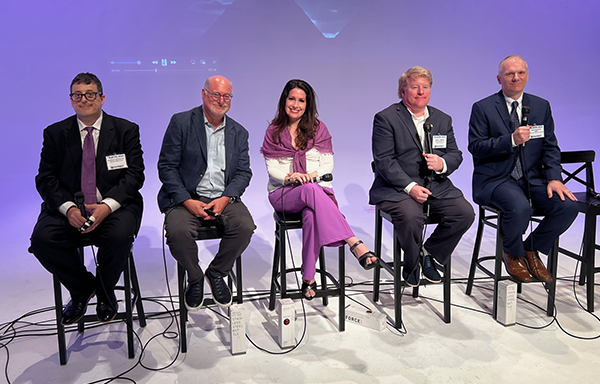
Pictured (l-r) are the industry visionaries who made the “Brave New World” panel one of the most illuminating highlights of TALKERS 2024: Radio and Beyond – Matthew B. Harrison, Esq., VP/associate publisher, TALKERS / senior partner, Harrison Media Law; Steven Goldstein, CEO, Amplifi Media; Heather Cohen, president, The Weiss Agency; John T. Mullen, GM, WRHU-FM/WRHU.org, Hofstra University; and Scot Bertram, GM, WRFH / Radio Free Hillsdale 101.7 FM. Not pictured, moderator Harry Hurley, morning host, WPG, Atlantic City. The session explored radio’s generational divide, the impact of YouTube and social media; changing technology, the protection of intellectual property rights, artificial intelligence and more.
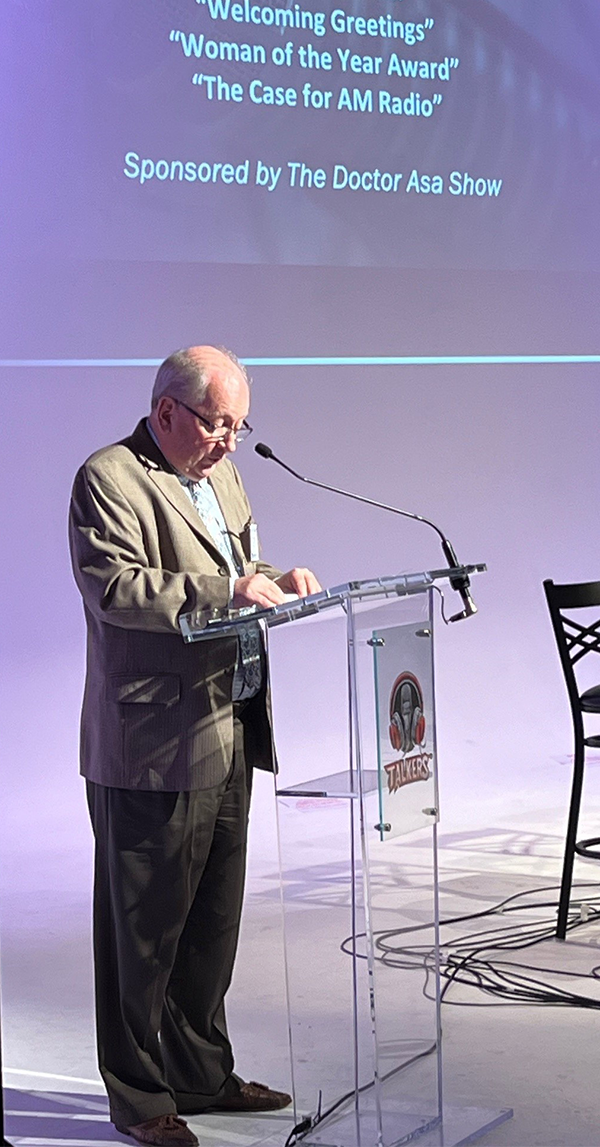
Bill Brady, owner/host, KFNX, Phoenix “The Pulse of Arizona” delivered a compelling address appropriately titled, “The Case for AM Radio” that received a standing ovation.
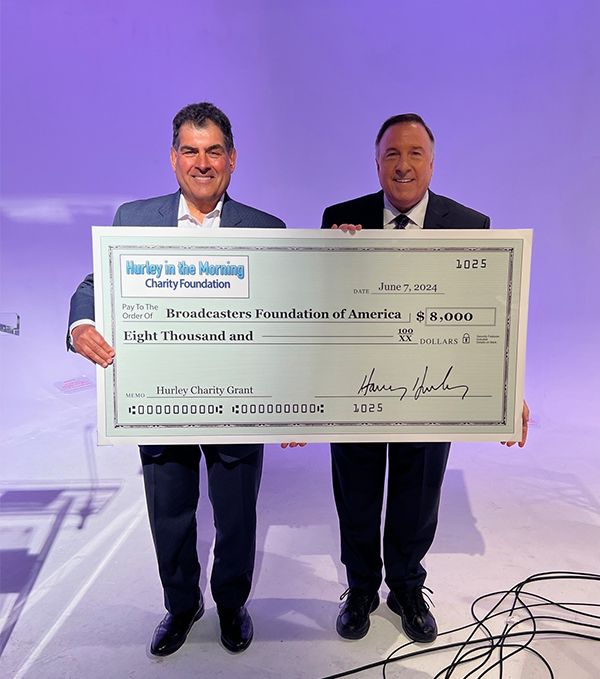
WPG, Atlantic City morning host Harry Hurley (r) presented Broadcasters Foundation of America chairman Scott Herman (l) with a donation of $8,000 from the famous Hurley in the Morning Charty Foundation. Each year, beginning with a $1,000 donation in 2017, Hurley has presented a gift to the BFoA at the TALKERS conference increasing the sum by a thousand dollars each year. The total now stands at $36,000. Herman delivered an emotional address detailing the tremendous work the Broadcasters Foundation does each year in providing financial support and protection to radio and TV professionals who have fallen on hard times due to catastrophic health issues or natural disasters. For more information about the Broadcasters Foundation of America please click here. www.broadcastersfoundation.org
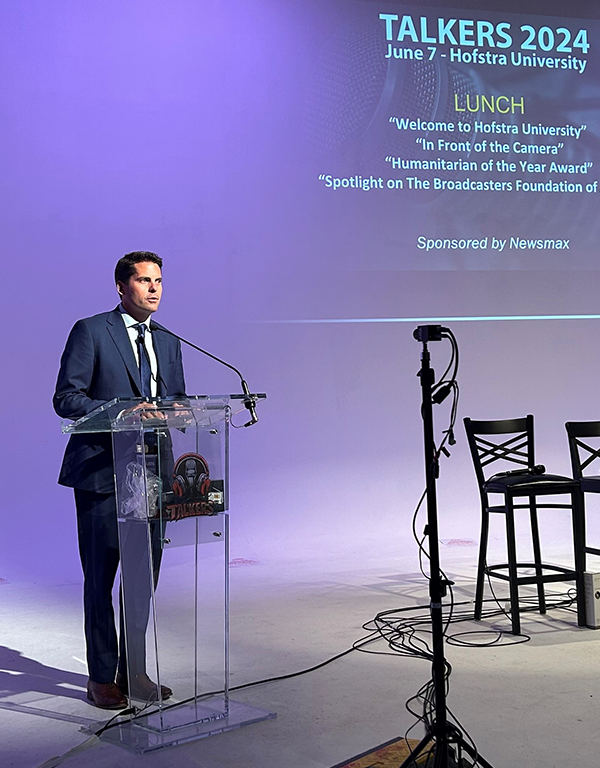
Rob Finnerty, host of “Wake Up America” on Newsmax TV, delivered an insightful lunchtime address titled “In Front of the Camera” expressing the perspective of talk show hosts on the television side of talk media. Newsmax sponsored the lunch at TALKERS 2024: Radio and Beyond.
Share this with your network



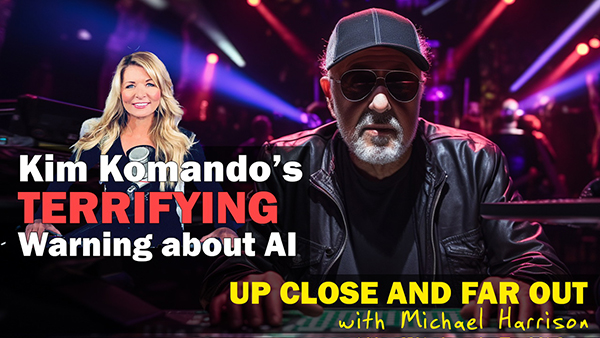
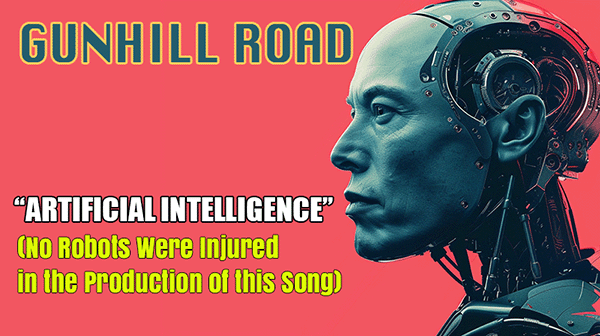

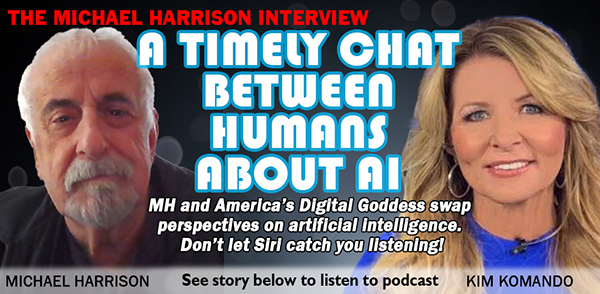
 as well as serving as news director for the Athens stations and anchor/reporter for sister news/talk WSB-AM/WSBB-FM, Atlanta. The Oconee Enterprise says Bryant “is known for not just delivering the news of Athens and Oconee on the airwaves but also interviewing political candidates, public figures and citizens who do something newsworthy, as well as hosting candidate forums.”
as well as serving as news director for the Athens stations and anchor/reporter for sister news/talk WSB-AM/WSBB-FM, Atlanta. The Oconee Enterprise says Bryant “is known for not just delivering the news of Athens and Oconee on the airwaves but also interviewing political candidates, public figures and citizens who do something newsworthy, as well as hosting candidate forums.” 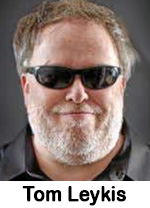 -CBS Radio’s talk KLXS-FM before the company dropped the talk format, which led to Leykis forming his The New Normal Network in 2012 and distributing his show online to subscribers. The Daily News story indicates that Leykis – who turns 68 in August – decided it was time to call it quits, saying, “A long time ago, I realized I did not want to be like some of the hosts I heard in the past — begging for callers, stretching for topics. I wanted to go out on my terms when I wanted. So, I did.” Leykis produced the final edition of his show in mid-May.
-CBS Radio’s talk KLXS-FM before the company dropped the talk format, which led to Leykis forming his The New Normal Network in 2012 and distributing his show online to subscribers. The Daily News story indicates that Leykis – who turns 68 in August – decided it was time to call it quits, saying, “A long time ago, I realized I did not want to be like some of the hosts I heard in the past — begging for callers, stretching for topics. I wanted to go out on my terms when I wanted. So, I did.” Leykis produced the final edition of his show in mid-May. 
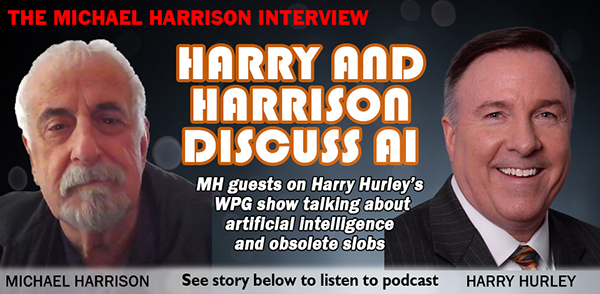




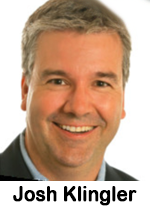 made the announcement yesterday (6/11) on the program. He said, “I am retiring from daily radio. I’ve been doing this for 30-something years all told six and seven days a week and kind of decided, probably after the football season if I’m being honest… My get-into-work time has been gradually getting later and later and later. And it’s just because getting up sucks. And there’s no other show I would want to do. There’s no other thing I would want to do in media. And just decided for me that this was like the perfect time to walk away.” Klingler says he’s not retiring fully. He’ll still do Chiefs radio broadcasts and some freelance TV.
made the announcement yesterday (6/11) on the program. He said, “I am retiring from daily radio. I’ve been doing this for 30-something years all told six and seven days a week and kind of decided, probably after the football season if I’m being honest… My get-into-work time has been gradually getting later and later and later. And it’s just because getting up sucks. And there’s no other show I would want to do. There’s no other thing I would want to do in media. And just decided for me that this was like the perfect time to walk away.” Klingler says he’s not retiring fully. He’ll still do Chiefs radio broadcasts and some freelance TV.  advertising. The five questions are: 1) Does audio work? 2) Can audio be planned and purchased at scale? 3) Are there creative best practices for getting audio right? 4) Can audio be measured? And 5) Is the brand properly set up for success? Fix says, “These five questions are important to advertisers, providers of audio, and the industry in general. Communication with advertisers is best when it is acknowledged as to the stage of the advertiser and the industry. Failure to identify and address each step in the 5-Question Framework will cause unnecessary delay.”
advertising. The five questions are: 1) Does audio work? 2) Can audio be planned and purchased at scale? 3) Are there creative best practices for getting audio right? 4) Can audio be measured? And 5) Is the brand properly set up for success? Fix says, “These five questions are important to advertisers, providers of audio, and the industry in general. Communication with advertisers is best when it is acknowledged as to the stage of the advertiser and the industry. Failure to identify and address each step in the 5-Question Framework will cause unnecessary delay.” 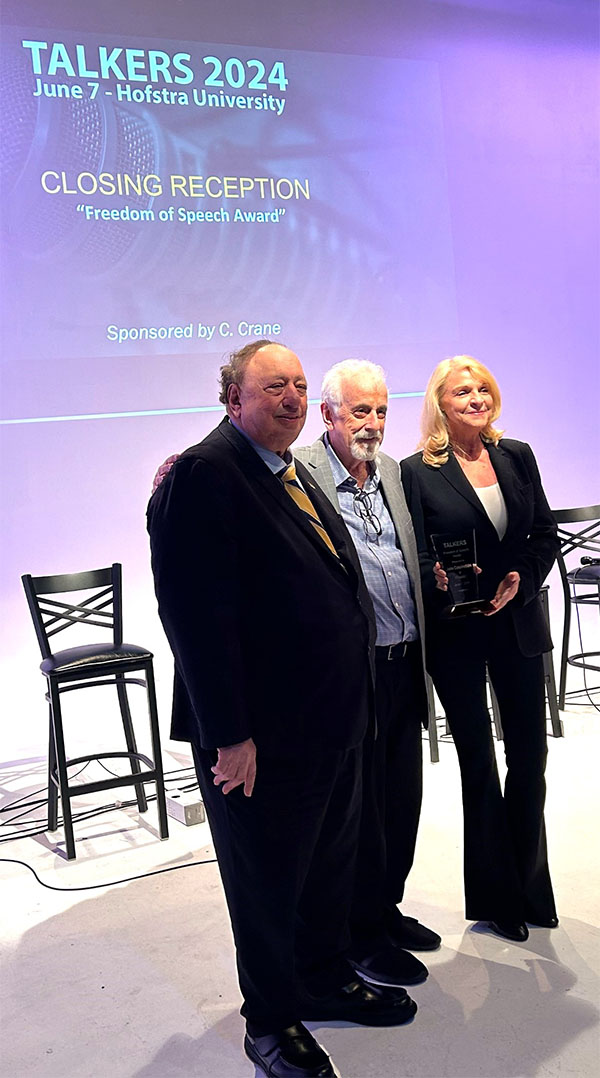
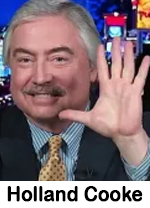 Got young local radio news talent? CONGRATULATIONS, for five reasons:
Got young local radio news talent? CONGRATULATIONS, for five reasons:

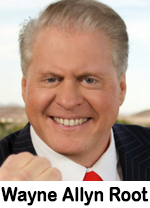 titled, ‘The Chosen One.’ This song was inspired by the media firestorm across the globe in July 2019 when I said on my Newsmax TV show Trump was ‘like the King of the Jews and the Chosen One.’” Root debuted the song on his Real America’s Voice TV show, “The Root Reaction” and on his Talk Media Network nationally syndicated radio show. Root adds, “In light of this unprecedented persecution, indictments and now unjust conviction of President Trump, this is the perfect song and video, at the perfect time, and the perfect place, to lift the spirits of President Trump and the MAGA world, and to show the world President Trump is on a mission from God to make America great again.”
titled, ‘The Chosen One.’ This song was inspired by the media firestorm across the globe in July 2019 when I said on my Newsmax TV show Trump was ‘like the King of the Jews and the Chosen One.’” Root debuted the song on his Real America’s Voice TV show, “The Root Reaction” and on his Talk Media Network nationally syndicated radio show. Root adds, “In light of this unprecedented persecution, indictments and now unjust conviction of President Trump, this is the perfect song and video, at the perfect time, and the perfect place, to lift the spirits of President Trump and the MAGA world, and to show the world President Trump is on a mission from God to make America great again.” 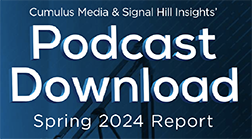 downloads, listens, or views never contemplated a device utilized by multiple people. What we have uncovered is that there is actually a fair amount of co-listening to podcasts that takes place. Whether it be with kids, friends, or family, the podcast industry is leaving ears on the table. There is a richer consumption story to be told as it is not just one person per download. For agencies and media planners, being able to examine co-listening by genre or podcast can offer invaluable insights into reaching the true audience.” Other notable findings include: 1) Marketers targeting people with a side hustle will find a rich concentration among men, heavy, and 18-34 podcast consumers; 2) Podcast pioneers and women like to go back to listen to back episodes and episodes they missed; 3) YouTube has been the most utilized podcast listening platform in the U.S. over the past year and a half: 31% say it is the platform they use the most, followed by Spotify (21%) and Apple (12%); and 4) As the world’s entertainment search engine, YouTube is the dominant podcast discovery platform where audiences are more likely to find podcasts.
downloads, listens, or views never contemplated a device utilized by multiple people. What we have uncovered is that there is actually a fair amount of co-listening to podcasts that takes place. Whether it be with kids, friends, or family, the podcast industry is leaving ears on the table. There is a richer consumption story to be told as it is not just one person per download. For agencies and media planners, being able to examine co-listening by genre or podcast can offer invaluable insights into reaching the true audience.” Other notable findings include: 1) Marketers targeting people with a side hustle will find a rich concentration among men, heavy, and 18-34 podcast consumers; 2) Podcast pioneers and women like to go back to listen to back episodes and episodes they missed; 3) YouTube has been the most utilized podcast listening platform in the U.S. over the past year and a half: 31% say it is the platform they use the most, followed by Spotify (21%) and Apple (12%); and 4) As the world’s entertainment search engine, YouTube is the dominant podcast discovery platform where audiences are more likely to find podcasts.  broadcast and digital journalism. NewsRadio 1080 KRLD in Dallas, WWJ Newsradio 950 in Detroit, KNX News 97.1 FM in Los Angeles and WCBS 880 in New York all were honored with the “Overall Excellence” Award. Other stations receiving Regional Murrow Awards include: KMOX, St. Louis (Newscast); KYW-AM/FM, Philadelphia (Newscast, Digital, Hard News); WWL-AM/FM, New Orleans (Breaking News, Continuing Coverage); and WCCO, Minneapolis (Newscast).
broadcast and digital journalism. NewsRadio 1080 KRLD in Dallas, WWJ Newsradio 950 in Detroit, KNX News 97.1 FM in Los Angeles and WCBS 880 in New York all were honored with the “Overall Excellence” Award. Other stations receiving Regional Murrow Awards include: KMOX, St. Louis (Newscast); KYW-AM/FM, Philadelphia (Newscast, Digital, Hard News); WWL-AM/FM, New Orleans (Breaking News, Continuing Coverage); and WCCO, Minneapolis (Newscast).  and the book, we relied on representations made to us by [producer] Dinesh D’Souza and True the Vote, Inc that the individuals depicted in the videos provided to us by TTV, including Mr. Andrews, illegally deposited ballots. We have learned that the Georgia Bureau of Investigation has cleared Mr. Andrews of illegal voting activity in connection with the event depicted in 2000 Mules. It was never our intent that the publication of the 2000 Mules film and book would harm Mr. Andrews. We apologize for the hurt the inclusion of Mr. Andrews’ image in the movie, book, and promotional materials have caused Mr. Andrews and his family. We have removed the film from Salem’s platforms, and there will be no future distribution of the film or the book by Salem.” The statement refers to Georgia resident Mark Andrews, who is suing D’Souza, Salem, and two people involved with True the Vote for defamation.
and the book, we relied on representations made to us by [producer] Dinesh D’Souza and True the Vote, Inc that the individuals depicted in the videos provided to us by TTV, including Mr. Andrews, illegally deposited ballots. We have learned that the Georgia Bureau of Investigation has cleared Mr. Andrews of illegal voting activity in connection with the event depicted in 2000 Mules. It was never our intent that the publication of the 2000 Mules film and book would harm Mr. Andrews. We apologize for the hurt the inclusion of Mr. Andrews’ image in the movie, book, and promotional materials have caused Mr. Andrews and his family. We have removed the film from Salem’s platforms, and there will be no future distribution of the film or the book by Salem.” The statement refers to Georgia resident Mark Andrews, who is suing D’Souza, Salem, and two people involved with True the Vote for defamation. 
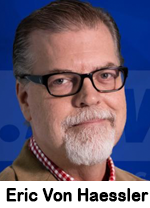 afternoon drive “Von Haessler Doctrine” show hosted by Eric Von Haessler, adding the 3:00 pm hour to the program that now airs live from 3:00 pm to 7:00 pm. Von Haessler made the announcement of the change on the air saying, “It’s a new day. It’s a new age. It’s a new era. Some people tuned in expecting something else. Maybe they’re a little upset. Give us a try. You might like it. It’s going to be this way no matter what.”
afternoon drive “Von Haessler Doctrine” show hosted by Eric Von Haessler, adding the 3:00 pm hour to the program that now airs live from 3:00 pm to 7:00 pm. Von Haessler made the announcement of the change on the air saying, “It’s a new day. It’s a new age. It’s a new era. Some people tuned in expecting something else. Maybe they’re a little upset. Give us a try. You might like it. It’s going to be this way no matter what.”  East, the Newscast category for its July 2023 coverage of the Commanders sale and the Overall Excellence category. The WTOP digital team was recognized overall in the Digital category for WTOP.com. Individual awards went to WTOP reporter Matt Kaufax in the Feature Reporting category for his piece on Martin’s Tavern turning 90 and to WTOP associate producer Veronica Canales in the Excellence in Writing Category for her piece on the Dr. Seuss Experience. WTOP director of news and programming Julia Ziegler comments, “Our team’s mission every day is to deliver the latest news to the DC region and help the people who live in our communities. It is a huge honor to be recognized for that work with six regional Murrow awards.”
East, the Newscast category for its July 2023 coverage of the Commanders sale and the Overall Excellence category. The WTOP digital team was recognized overall in the Digital category for WTOP.com. Individual awards went to WTOP reporter Matt Kaufax in the Feature Reporting category for his piece on Martin’s Tavern turning 90 and to WTOP associate producer Veronica Canales in the Excellence in Writing Category for her piece on the Dr. Seuss Experience. WTOP director of news and programming Julia Ziegler comments, “Our team’s mission every day is to deliver the latest news to the DC region and help the people who live in our communities. It is a huge honor to be recognized for that work with six regional Murrow awards.”  due to critical illness or disaster. The campaign also strives to raise awareness of the Broadcasters Foundation’s charitable purpose to ensure that anyone in radio and television who might qualify for aid can apply. BFoA presiddnt Tim McCarthy says, “One hundred percent of Giving Day donations go directly to grants that help our colleagues, who are struggling with life-altering disease or disaster. Any amount – large or small – helps provide much-needed aid to support our colleagues.” The Broadcasters Foundation has distributed more than $15 million dollars in aid over the past 20 years. Monthly grants support broadcasters on a continual basis while they recover from an illness or accident. Emergency grants provide one-time financial aid following a devastating natural disaster or home emergency. Find out more at
due to critical illness or disaster. The campaign also strives to raise awareness of the Broadcasters Foundation’s charitable purpose to ensure that anyone in radio and television who might qualify for aid can apply. BFoA presiddnt Tim McCarthy says, “One hundred percent of Giving Day donations go directly to grants that help our colleagues, who are struggling with life-altering disease or disaster. Any amount – large or small – helps provide much-needed aid to support our colleagues.” The Broadcasters Foundation has distributed more than $15 million dollars in aid over the past 20 years. Monthly grants support broadcasters on a continual basis while they recover from an illness or accident. Emergency grants provide one-time financial aid following a devastating natural disaster or home emergency. Find out more at 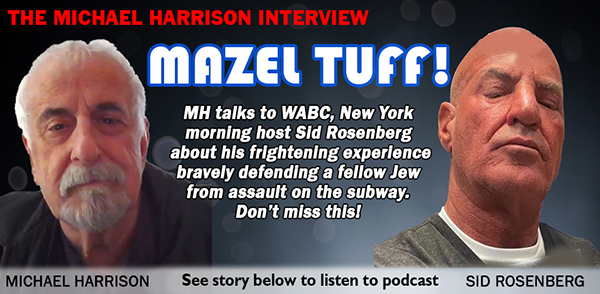
 South Carolina morning host Randy “Steam” Stevens recently passed away after suffering injuries in a motorcycle crash that happened on May 10. WLBG says that Stevens recently celebrated the 30th anniversary of his talk show, “Good Morning, Up-Country.” In addition to his work in radio, Stevens was active with the Patriot Guard motorcycle riders and served on the board of directors of the Laurens County Humane Society. Stevens also appeared on the station’s “Morning News Magazine” and the station’s coverage of local elections across Laurens County.
South Carolina morning host Randy “Steam” Stevens recently passed away after suffering injuries in a motorcycle crash that happened on May 10. WLBG says that Stevens recently celebrated the 30th anniversary of his talk show, “Good Morning, Up-Country.” In addition to his work in radio, Stevens was active with the Patriot Guard motorcycle riders and served on the board of directors of the Laurens County Humane Society. Stevens also appeared on the station’s “Morning News Magazine” and the station’s coverage of local elections across Laurens County. 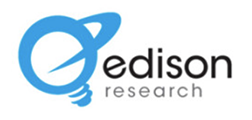 Comedy is the top genre among weekly podcast listeners age 13+. Edison says 19 genres have been identified as having at least one percent reach among weekly podcast listeners aged 13 and older in Q1 2024. Edison defines a podcast’s genre using its primary genre in Apple Podcasts. Society & Culture (#2) moved ahead of News (#3) while True Crime followed at #4 and Sports came in at #5.
Comedy is the top genre among weekly podcast listeners age 13+. Edison says 19 genres have been identified as having at least one percent reach among weekly podcast listeners aged 13 and older in Q1 2024. Edison defines a podcast’s genre using its primary genre in Apple Podcasts. Society & Culture (#2) moved ahead of News (#3) while True Crime followed at #4 and Sports came in at #5. 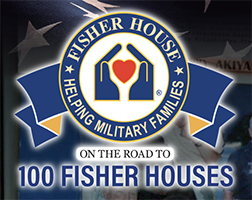 around the world. The 3-hour, 1-hour, 25-minute, and 30-minute radio specials are hosted by longtime Washington, DC radio personality Larry O’Connor and feature stories of our nation’s heroes, the families who serve by their side, and how Fisher House plays a role in their journey. The inspiring and patriotic radio show features an exclusive interview with Jessica Lynch who recounts her harrowing experience as a prisoner of war during the early days of the 2003 Invasion of Iraq during Operation Enduring Freedom. Ms. Lynch reveals details of her treatment during her captivity, her rescue, the ensuing years of medical treatment and the special role Fisher House played (and continues to play) in her recovery. Fisher House Foundation provides a home away from home for families of patients receiving medical care at major military and VA medical centers. Fisher Houses provide temporary free lodging so families can be close to their loved ones during medical care because “A Family’s LOVE is Good Medicine.” IMPORTANT NOTE: Due to a production delay, some stations may have inadvertently downloaded last year’s holiday edition.
around the world. The 3-hour, 1-hour, 25-minute, and 30-minute radio specials are hosted by longtime Washington, DC radio personality Larry O’Connor and feature stories of our nation’s heroes, the families who serve by their side, and how Fisher House plays a role in their journey. The inspiring and patriotic radio show features an exclusive interview with Jessica Lynch who recounts her harrowing experience as a prisoner of war during the early days of the 2003 Invasion of Iraq during Operation Enduring Freedom. Ms. Lynch reveals details of her treatment during her captivity, her rescue, the ensuing years of medical treatment and the special role Fisher House played (and continues to play) in her recovery. Fisher House Foundation provides a home away from home for families of patients receiving medical care at major military and VA medical centers. Fisher Houses provide temporary free lodging so families can be close to their loved ones during medical care because “A Family’s LOVE is Good Medicine.” IMPORTANT NOTE: Due to a production delay, some stations may have inadvertently downloaded last year’s holiday edition. 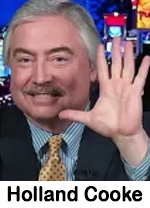 Because you can? Because you aren’t doing AM/FM radio? Because you are on radio, but can’t-do-there what you can-do podcasting? Because you are making money podcasting?
Because you can? Because you aren’t doing AM/FM radio? Because you are on radio, but can’t-do-there what you can-do podcasting? Because you are making money podcasting?
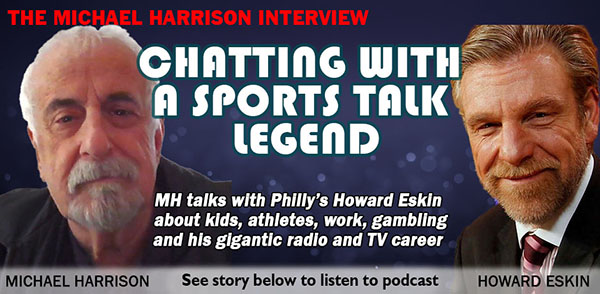
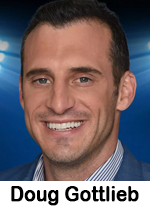 personality Doug Gottlieb is the new head coach of the school’s men’s basketball team. In what is a first, Gottlieb will continue to host his daily, two-hour radio show for FSR while undertaking his new role with UW-GB Phoenix. Gottlieb was a standout point guard at Oklahoma State from 1997 – 2000. He’s coached AAU teams and coached at the Maccabiah Games in Israel. During time in the media, he’s been a studio and in-game commentator for college hoops over the years while serving with ESPN, CBS Sports and Fox Sports.
personality Doug Gottlieb is the new head coach of the school’s men’s basketball team. In what is a first, Gottlieb will continue to host his daily, two-hour radio show for FSR while undertaking his new role with UW-GB Phoenix. Gottlieb was a standout point guard at Oklahoma State from 1997 – 2000. He’s coached AAU teams and coached at the Maccabiah Games in Israel. During time in the media, he’s been a studio and in-game commentator for college hoops over the years while serving with ESPN, CBS Sports and Fox Sports.  defaming two Georgia election workers, and they were accusing him of make new false accusations against them.
defaming two Georgia election workers, and they were accusing him of make new false accusations against them. 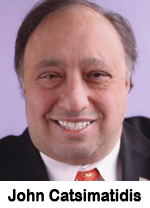 talking about the 2020 election for three years and was never made aware that election talk was off limits. In The New York Times story Giuliani states that WABC’s policies on this topic are “a clear violation of free speech” to which TALKERS founder Michael Harrison comments, “As a lawyer, former attorney
talking about the 2020 election for three years and was never made aware that election talk was off limits. In The New York Times story Giuliani states that WABC’s policies on this topic are “a clear violation of free speech” to which TALKERS founder Michael Harrison comments, “As a lawyer, former attorney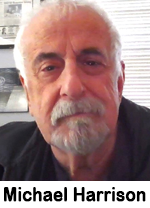 general and former mayor, Giuliani should know better than to muddy the waters about ‘free speech’ by citing it and distorting it for his own defense in this manner. The letter of the law regarding the First Amendment protects the rights and responsibilities of Catsimatidis as the licensee and platform owner in this situation. And as far as the spirit of the law as indicated by the general term ‘free speech’ is concerned, the understanding between these two men as to what Giuliani can discuss on WABC is completely subjective and ultimately based on what the licensee determines at any given moment to be in the best interest of the platform, its listeners and most importantly, the truth.”
general and former mayor, Giuliani should know better than to muddy the waters about ‘free speech’ by citing it and distorting it for his own defense in this manner. The letter of the law regarding the First Amendment protects the rights and responsibilities of Catsimatidis as the licensee and platform owner in this situation. And as far as the spirit of the law as indicated by the general term ‘free speech’ is concerned, the understanding between these two men as to what Giuliani can discuss on WABC is completely subjective and ultimately based on what the licensee determines at any given moment to be in the best interest of the platform, its listeners and most importantly, the truth.” 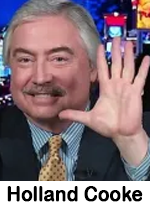 Actor Hugh Grant’s Tweet called it “The destruction of the human experience. Courtesy of Silicon Valley.” He was reacting to Apple’s
Actor Hugh Grant’s Tweet called it “The destruction of the human experience. Courtesy of Silicon Valley.” He was reacting to Apple’s 